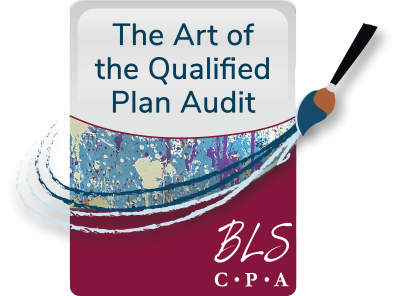Category: Plan Administration
Leveling Out ADP and ACP Tests with Refunds, QNECs/QMACs, Bottom-Up QNECs, or One-to-One Contributions
December 27, 2016
Discrimination. It’s a concept that most people don’t associate with retirement plan savings.
What am I signing? – A quick guide to management representation letters
November 30, 2016
Plan administrators probably view the management representation letter as a document they must sign so they likely do so without reading it closely.
2017 Plan Limits Announced: Don’t Forget to Update Your Deferral Election
November 08, 2016
Along with the presidential election on Tuesday, November 8, another election that participants should have on their mind is the deferral for their retirement plan.
Elective Deferral Election Benefit Plan Administration
April 18, 2016
One of the most common operational errors when administering retirement plans is the failure to implement a participant’s elective deferral election or change in percentage.
What’s in a Name? Are Retirement Plans of Entities with Religious Names Automatically Church Plans?
November 18, 2015
Posted by Maria T. Hurd, CPA Juliet: “What’s in a name? That which we call a rose By any other name would smell as sweet.” Let us consider what a name is. It is the grouping of letters that represent the identification of a person, object, or entity. However, the words may not be exactly representative … Continued
What Goes in the Denominator? Complying with the Allocation Rules for Distributions from Qualified Plans With After-Tax Accounts
March 03, 2015
Compliance starts with understanding. Understanding the rules set forth in Notice 2014-54, assisted us with the application of the rules in a situation in which a participant was entitled to take a distribution from his after-tax account only, in a qualified plan that provides and separately accounts for:
Trustee Travel Expense Reimbursements
September 16, 2014
Traveling Outside State Lines Requires Staying in Line with the Travel Expense Reimbursement Rules. Taft-Hartley plan trustees must stay up to date on the most recent rules and regulations regarding plan administration.
Unforeseeable Emergency Distributions from 457(b) Plans
July 30, 2014
State or local governments and organizations that are tax-exempt under IRC Section 501(c) can establish a 457(b) plan to allow their employees to defer income taxation on retirement savings, similar to how the more popular 401(k) plans operate, but with some important differences, including the availability of hardship distributions.
Don’t Forget to Distribute Safe Harbor Notices
November 08, 2012
As previously discussed in K.I.S.S.: Keep it Simple and Straight Forward with Safe Harbor Plan Designs, the IRS requires that safe harbor 401(k) plans, prior to the beginning of each plan year, […]
A CE Event You Won’t Want to Miss
March 15, 2012
Posted by Maria T. Hurd, CPA On Thursday, April 12 2012, Raymond James and Drexel University’s LeBow College of Business will be presenting a continuing education event for professionals involved with corporate retirement plans. Representatives from the U.S. Department of Labor will make a keynote presentation on the final 408(b)(2) and 404(a)(5) fee disclosure regulations and … Continued






